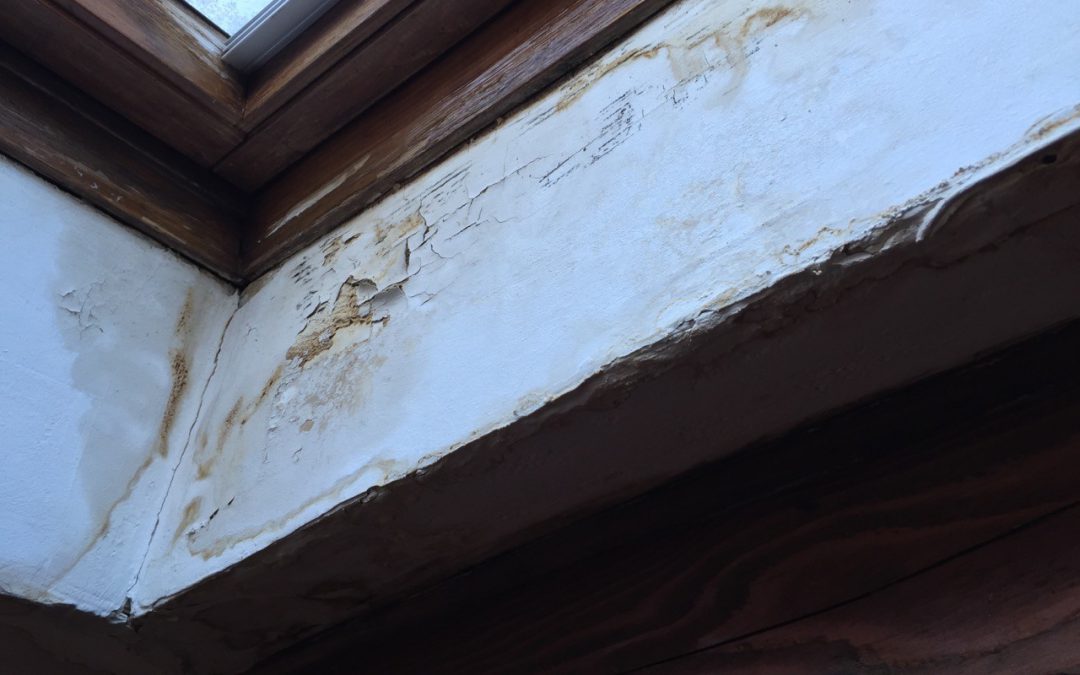Many of us have returned from our summer break by now and are back into the swing of our working lives. My partner and I just got home from attending our usual annual retreat in Lerab Ling, a Tibetan Buddhist centre near Montpellier in the South of France. We have a tiny cottage in the forest where we stay during our retreat time. It is our opportunity to enjoy some quiet time in nature, while receiving meditation instruction to nourish us throughout the year.
We drive there from Amsterdam and our arrival is always a sensitive time. We are tired from the preparations to leave and the long journey. We know we have a lot to do to set up the cottage for our stay and, as it is remote, we have no idea what we will find when we open the door.
This year was a shock. When we went to the room where we sleep we saw that the skylight had leaked through and damaged the area around the window. To make matters worse, this has been an on-going problem, which we thought it was all fixed and done with. When you are on retreat in another country in August and you need to arrange work to be done it can be a big hassle. My heart fell and I felt pretty fed up. Thoughts like, ‘I don’t need this’ and ‘Why can’t things just go smoothly for a change?’ chased each other through my mind. I felt pretty sorry for myself.
This is where meditation kicks in for me and I really see how much it matters in my life. Negative emotions can still come but they do not bite like they used to. They don’t get a hold on me and define my behaviour. Even while I am feeling miserable there is a part of me that knows that it won’t last, that I am not going to feel this way for ever. There is a fundamental part of me that accepts that life has its ups and downs and difficult things will certainly happen, so I am not as surprised as I used to be when things don’t go as I want.
We can think that as meditators we should be able to manage our emotions perfectly but that can just be another way of putting ourselves down. Of course, the more skilfully we can manage our emotions the better but meditation is not an instant cure-all and we can celebrate the steps we take as we go along. Developing a sense of perspective and learning—however slowly—not to take things too personally are two of these important steps. It helps build confidence in meditation to be able to see that although your mind can still get pretty intense, some things are a little easier.
One of the most helpful images I know of to help build confidence in meditation is the example of the sky and the clouds. The sky represents our natural state of openness, spaciousness and wellbeing—our natural mind if you like. The clouds are the thoughts and emotions that pass across our minds. Thoughts do not spoil the mind, or leave any lasting impression—they simply come and go, like clouds. As we become more familiar with meditation we can begin to experience that for ourselves and get a different take on how to handle things going wrong. It becomes more possible to accept things as they are, rather than wishing them to be different and even to develop a certain sense of humour about the craziness of it all.
We are talking about building mental resilience—the ability to overcome obstacles and recover from hard times. It means having a place of inner peace that is always available to us and that helps us to work with how we see things. It enables us to face change and difficulties as opportunities for growth, rather than simply to view them as threats. Not surprisingly, Richard Davidson places resilience as one of the four skills of wellbeing. We know from neuroplasticity that the brain can change according to experience. The experience of meditation will help to develop activity in the pre-frontal cortex, which in turn helps to calm the fight-or-flight response of the amygdala when facing stress.
Sure enough, as I struggled to connect with a sense of inner peace while surveying the damaged skylight, I could look through the rain-stained and murky window to see the clear blue sky beyond. The perspective was there for me to see—however challenging things are in the moment, that moment will pass.
If you would like to know more about meditation and resilience, watch this short video where Richard Davidson and Jon Kabat-Zinn explore this further.
How to start meditation in a way that will last
This online course is designed to help beginners make a sustainable start to their meditation practice. You can find out more and sign up here





